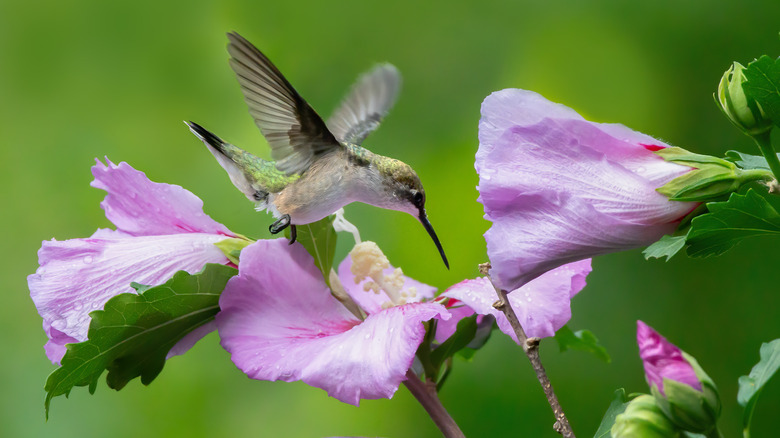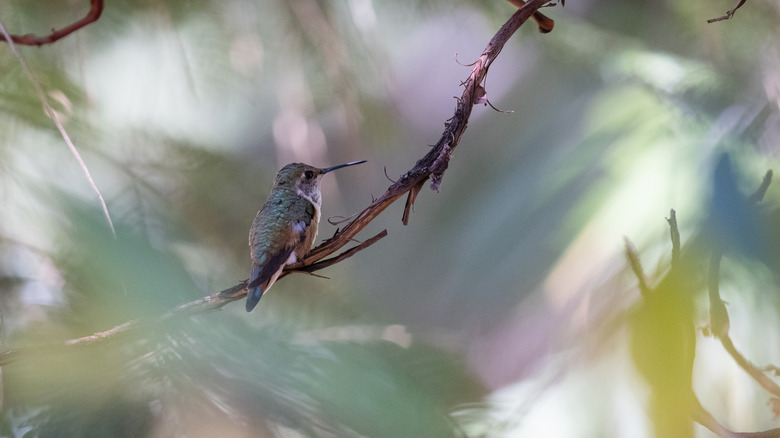Hummingbirds Are In Danger If This Feathered Friend Visits Your Yard
You may have taken steps to support hummingbirds in your yard, including putting up a nectar feeder, planting flowers that hummingbirds love, and providing a source of water. Aside from meeting their food and water needs though, it's also important to do what you can to make sure hummingbirds are safe in your yard. This can include keeping certain spiders away from hummingbird feeders, placing feeders near plants, and looking out for predators. Unfortunately, owls are among the possible, though not common, types of hummingbird predators that may visit your yard.
Owls are often thought to be solely nocturnal creatures that primarily feast on rodents, but the diets and behaviors of owls vary among species. For example, while barn owls are known to primarily eat rodents, barred and screech owls can eat these as well as small birds, reptiles, and amphibians. Great-horned owls can also eat both rodents and small birds. If you do see an owl near your yard, you might be alarmed for the safety of hummingbirds and small songbirds around your garden. However, while certain species of owls have been reported to prey on hummingbirds, it's also important to know about other predators and dangers that are more prevalent threats for these birds.
Other hummingbird predators and dangers to be aware of
Owls are possible hummingbird predators, but there are other creatures that are more likely to prey on these tiny birds to be aware of. Some of the likely predators to eat hummingbirds in your yard or garden include cats, frogs, and praying mantis. Sometimes spiders, bees, and wasps might harm hummingbirds as they compete for sources of food and shelter. Hawks are among the most documented types of larger birds to prey on hummingbirds, with gulls, bluejays, grackles, and herons reported to occasionally eat them as owls sometimes do.
When considering hummingbird safety, it's not just predators you need to be aware of. Other potential dangers to these small birds include invasive plants, the use of pesticides in your yard, lack of shelter, and unclean feeders and water fountains. It's important to keep this in mind as you maintain safe spaces in your yard for your favorite birds. Make sure to clean feeders and fountains often, grow a variety of pollinating plants, and avoid using pesticides that could inadvertently eliminate sources of protein from hummingbirds' diets.

